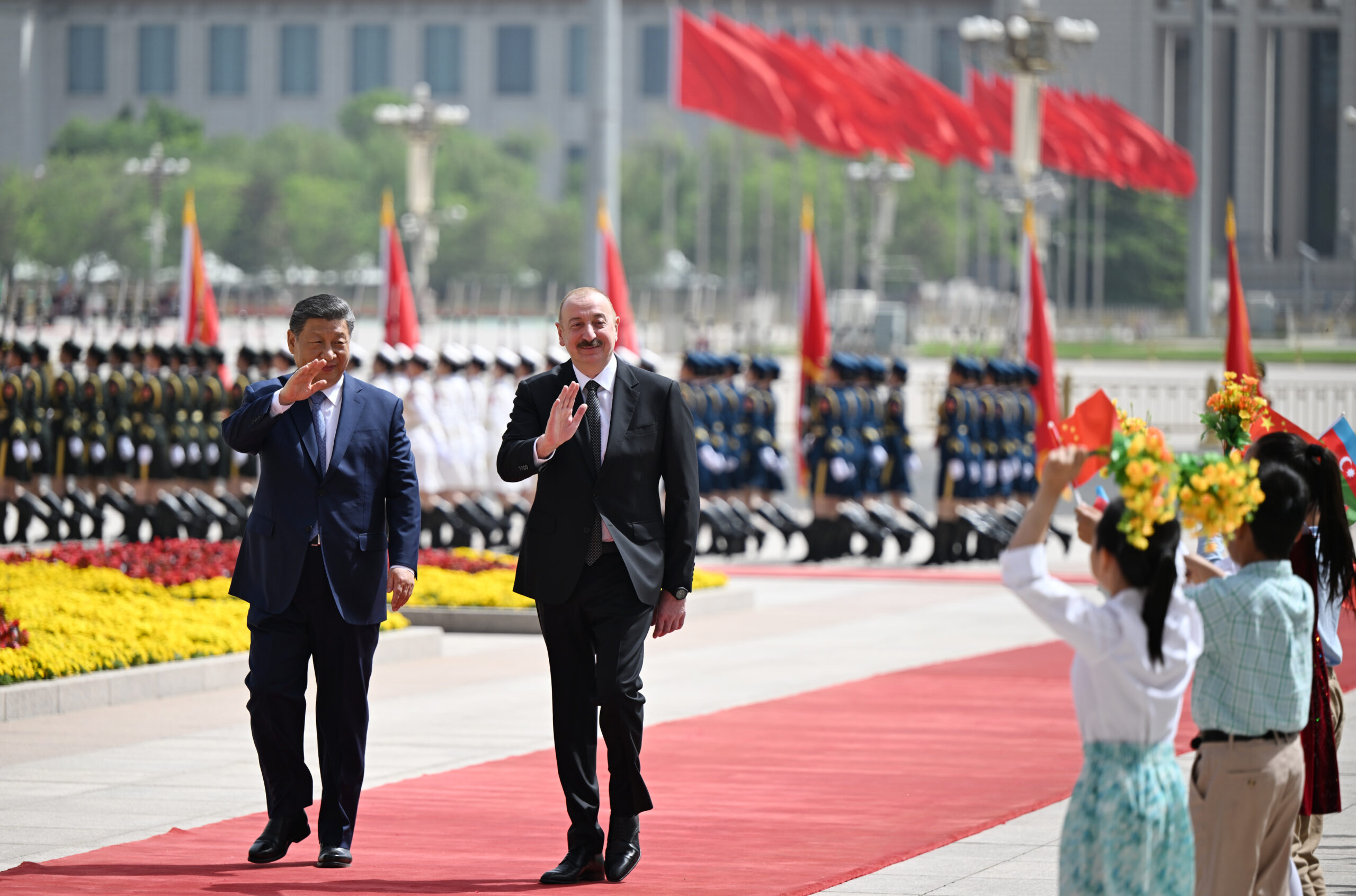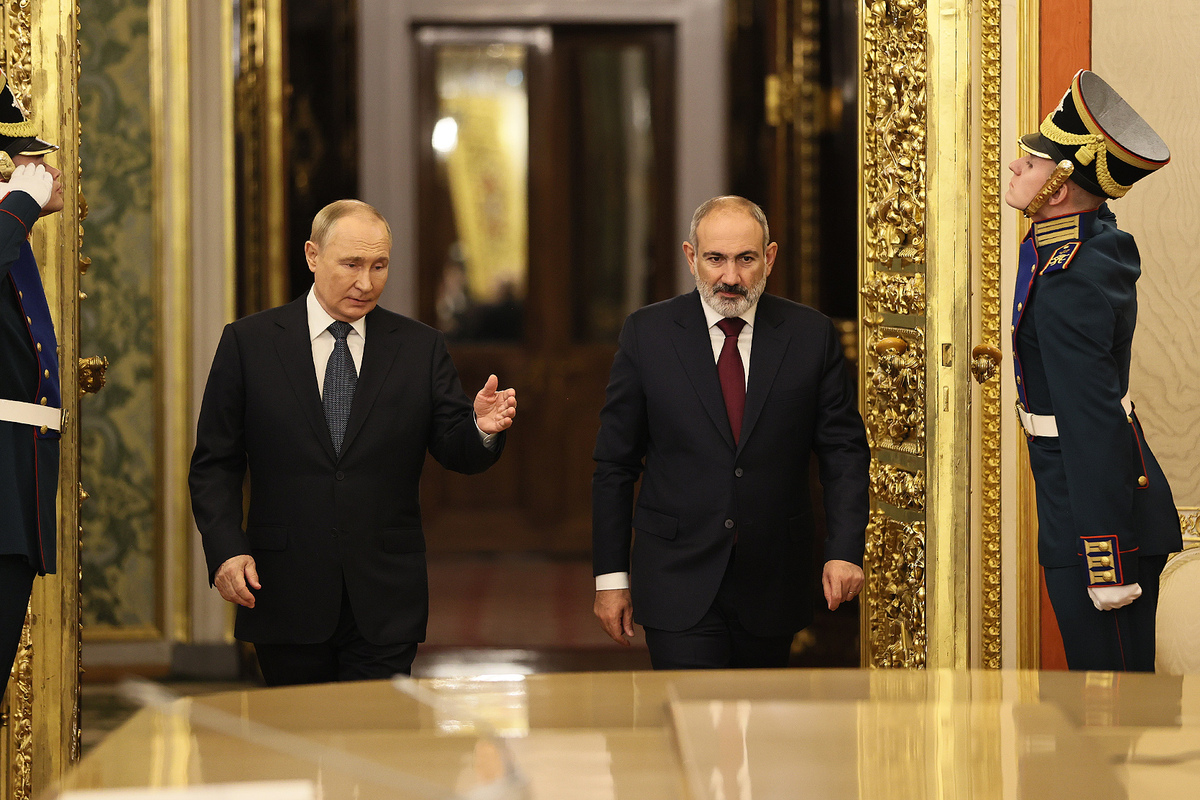Why Azerbaijan-Russia ties have cooled — and what comes next
Azerbaijan-Russia deteriorating relations
President Ilham Aliyev of Azerbaijan was notably absent from Russia’s May 9 Victory Day parade in Moscow, where armored vehicles rolled across Red Square and Russian state media echoed the symbolism of the war in Ukraine.
Aliyev had initially confirmed his attendance, but his office later announced the trip was canceled due to events marking the 102nd anniversary of the birth of Heydar Aliyev, the president’s father and Azerbaijan’s former leader often referred to as the “national leader.”
However, many analysts believe the real reason behind Aliyev’s absence lies in the growing tensions between Baku and Moscow – particularly in the aftermath of a December 2024 aviation disaster that severely strained bilateral ties.
According to multiple reports, a passenger plane operated by AZAL was mistakenly downed by a Russian air defense system, killing 38 people. Azerbaijan has demanded that Moscow acknowledge responsibility and provide compensation.
The incident disrupted what had been a carefully managed balance in Azerbaijan-Russia relations. Some analysts describe it as a “systemic shift triggered by a single event.”
The current tone of the relationship appears markedly cooler, a view shared by independent political analyst Zardusht Alizadeh and pro-government commentator Elkhan Shahinoglu, albeit for different reasons.
The crash and Moscow’s response. On December 25, 2024, an Azerbaijan Airlines passenger jet flying from Baku to Grozny (Chechnya) was diverted by Russian air traffic controllers to Astana, but later crashed over Kazakhstan. Of the 67 people on board, 38 were killed.
Soon after, reports emerged that the plane had been mistakenly shot down by a Russian Pantsir-S1 air defense system. This was later confirmed by international experts and U.S. officials. On December 28, Russian President Vladimir Putin issued an apology for the “tragic incident,” but stopped short of accepting responsibility.
A day later, on December 29, President Aliyev publicly stated that the aircraft had been hit by a Russian missile and demanded accountability and reparations. On January 6, 2025, he accused Moscow of “trying to cover up what happened.”
- Ilham Aliyev: ‘Russia clearly seeks to bury the issue’
- Azerbaijani-Russian relations: How downed plane sparked geopolitical conflict
- Azerbaijan’s geopolitical strategy: key messages from Ilham Aliyev
- ‘If not for internal traitors, Russia would have achieved nothing in Georgia’ – political analyst
Commentary:
Zardusht Alizadeh says ‘Russia is no longer a model for anyone’

Political analyst Zardusht Alizadeh told JAMnews: “Azerbaijan is not hostile to Russia, but it does not submit to it either. Official Baku is increasingly maintaining a cautious distance from Moscow.
Aiming for balance and security, Azerbaijan’s leadership has pursued a pragmatic policy since the time of Heydar Aliyev. Ilham Aliyev continues this policy.
Azerbaijan does not seek confrontation. On the contrary, whenever it is in the country’s interest to cooperate with Russia, the authorities do so. The North–South transport corridor (Sri Lanka–India–Iran–Caspian Sea–Russia, a total of 11 countries — JAMnews) and gas transit are proof of that.
But no one is allowed into Ilham Aliyev’s ‘inner garden.’ He makes it clear that Putin is a guest here, and he is the host of this space.
Aliyev’s absence from such an important event for Putin as the Victory Parade is a continuation of this pragmatic approach. Azerbaijan’s relationship with Russia is built on the ‘neutralization’ of threats. Red lines are never crossed. No foreign power is allowed to influence Azerbaijan. Russia, the West, and even the most important partner, Turkey, all operate within these boundaries.
But again, Ilham Aliyev’s actions are rational. And in the case of the parade, this was evident as well: the president of Azerbaijan, by not attending, chose to keep his distance from Russia rather than say an open ‘no’—a path more and more countries are now choosing.
You don’t have to love Russia. But there is no such thing as forced friendship. Russia is no longer a model for anyone.”
Elkhan Shahinoglu: “The ‘St. George’s ribbon’ is a symbol of Russian aggression”

Political analyst Elkhan Shahinoglu wrote in a Facebook comment:
“Ilham Aliyev’s boycott of the Moscow parade was the right strategic decision. I can name at least two reasons.
First, most of the guests at the parade wore the ‘St. George’s ribbon’ on their lapels. When Russian chauvinists occupied Georgian territories, they wore those ribbons on their collars. The same ribbons now ‘decorate’ them during their aggressive war against Ukraine.
The president of Azerbaijan, who supports the territorial integrity of both Georgia and Ukraine, will not wear the symbol of an occupier.
The black-and-orange ‘St. George’s ribbon’ reflects the colors of the Russian Empire’s coat of arms. In Russia, it is widely worn as a symbol of military glory, especially on days related to wartime victories. In many countries, it is recognized as a symbol promoting military aggression and is either banned by law or unofficially prohibited — in the South Caucasus, this includes Georgia.
Second, while military equipment was rolling across Red Square, the commentator repeatedly said the phrase ‘this equipment is used during the special military operation,’ without directly mentioning Ukraine. This once again shows that the Kremlin used the parade for political purposes.
The parade has turned into an ideological platform. For Russia, Victory Day is no longer just a commemorative date — it’s now a stage for sending messages of support for the ‘special operation.’ This does not align with Azerbaijan’s foreign policy stance.”
Sharp reaction in Russia, Baku ready to respond
Aliyev’s boycott of the parade triggered a sharp reaction in pro-government media in Russia. Many presented it as “following Washington’s instructions.”
However, Baku has repeatedly highlighted issues in its relations with Moscow:
- The lack of an investigation into the downed airplane,
- Cyberattacks against Azerbaijani media,
- Steps that have created tension, including the recent incident on May 5, when Russian authorities denied entry to Azer Badamov, a member of the Azerbaijani delegation.
“Moscow may resort to new measures of pressure in the future. However, official Baku is aware of the new geopolitical realities,” said Elkhan Shahinoglu.
News in Azerbaijan




















